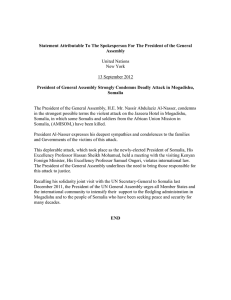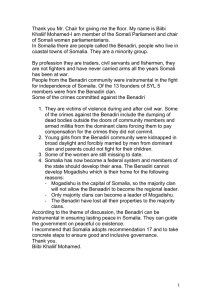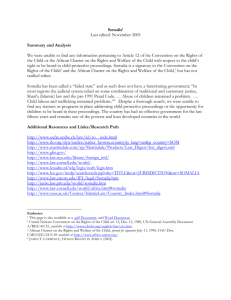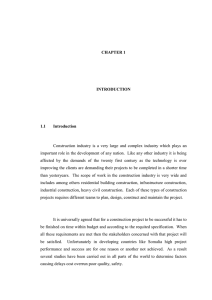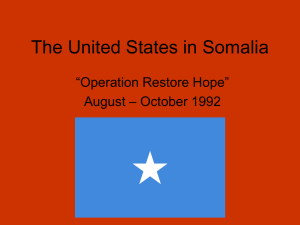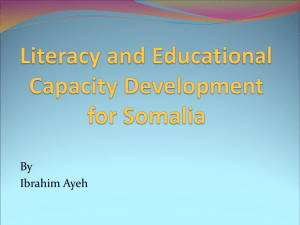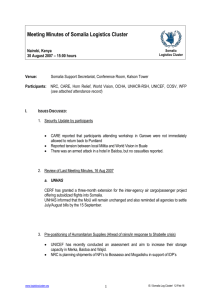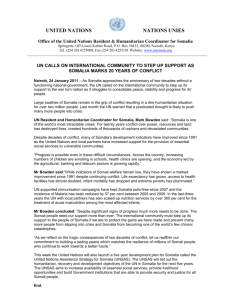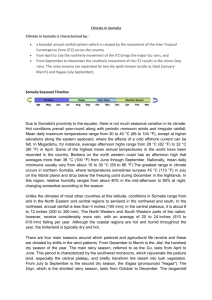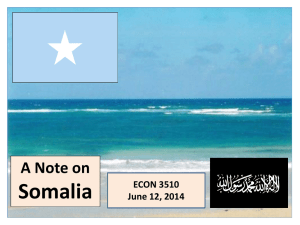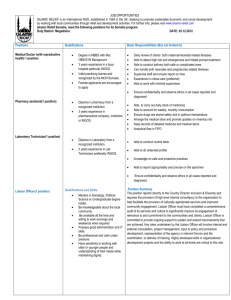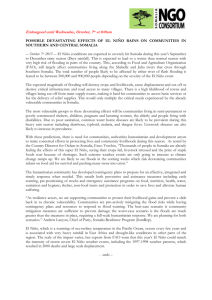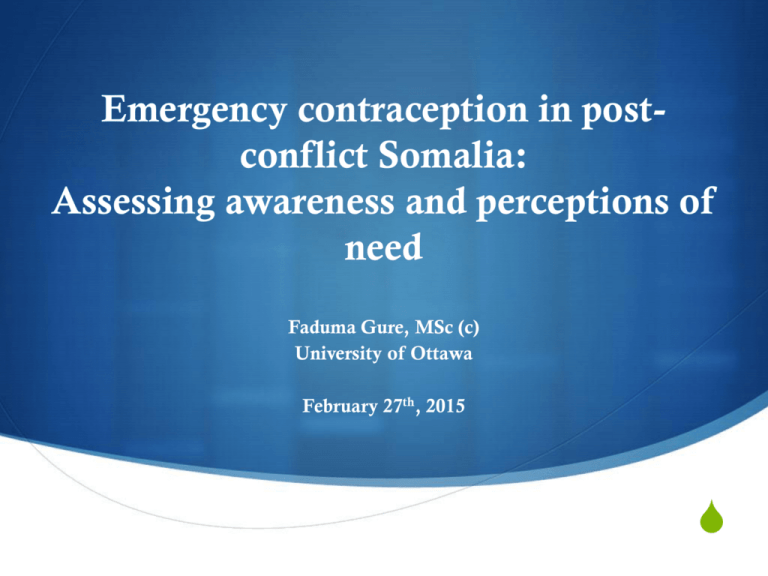
Emergency contraception in postconflict Somalia:
Assessing awareness and perceptions of
need
Faduma Gure, MSc (c)
University of Ottawa
February 27th, 2015
S
Background:
Somalia
Gained independence
in 1960
Civil war (1991-)
devastated available
public services
Federal Government of
Somalia 2012
Background: Reproductive health in
Somalia
S TFR= 6.7 children/woman
S MMR= 850 deaths/100,000 live births
S Reproductive health services are scarce/inaccessible
EC in crisis/conflict settings
S May be first preventative method women encounter after
sexual intercourse
S Contraceptive prevalence rate=15% (global average ~ 62%)
S No dedicated emergency contraceptive pill (ECP)
S This study explored EC in the Somali context
Research Questions
What is the level of
awareness of EC among
different stakeholders?
What is the perceived need
for EC among
stakeholders?
What are the various
facilitators and barriers to
expanding access to EC in
post-conflict Somalia?
Interviews with key informants
S 10 formal, semi-structured interviews with key
informants
S Representatives from local/international NGOs, the
Ministry of Health, medical doctor
S Provided insight into decision making involved in
registration of EC, awareness, opinions
Interviews with key informants:
Findings
S Lack of awareness of EC: Only 2/10 knew about
EC
S Believed it to be a necessary service that should be
made available
S Believed anyone could make EC available in
Somalia
S Awareness raising about service is critical
Interviews with pharmacists
S 20 structured, in-person interviews with pharmacists
S Critical point of first access for health services in
Somalia
S Provided insight into perspectives of potential
service providers
Interviews with pharmacists:
Findings
S Only 1/20 pharmacists knew about EC
S EC was never sold in their pharmacies
S Excited about idea of EC
S Supported EC as a future service they would provide
in pharmacies
S A lot of awareness would need to be done to let
women know EC exists
Focus group discussions with
women in Mogadishu
S 4 FGDs with married and unmarried groups of
women (21 participants)
S From various districts in Mogadishu; 1 group from
IDP settlement
S Focused on knowledge, opinions and experiences
with EC and reproductive health more generally
Focus group discussions:
Findings
S None of the women in the FGDs ever heard of EC
before
S Found it very difficult to understand, but after much
explanation were very excited this existed
S Believed it could put an end to dangerous methods
women currently use because it was “the only other
way”
S Believed education/awareness raising was extremely
important
Expanding EC access to Somalia:
Barriers
S Health care system is underdeveloped/largely
privatized
S No regulatory body that oversees services currently
provided
S HCPs lack awareness about EC and other basic family
planning services
S Poverty, famine, insecurity may overshadow access to
services like EC
Expanding EC access to Somalia:
Facilitators
S Need is great and interest exists
S Medications can enter market easily
S Misinformation about EC does not exist
S Federal Government of Somalia currently in place
Conclusion
S 2010-2015 Somali Reproductive Health National Strategy
and Action Plan (SRHNSAP): birth spacing
S EC must be integrated into national family planning strategies
S Awareness raising efforts that target different stakeholders
needed
S Focus on Yuzpe could be valuable (OCPs are available)
S Awareness/knowledge of this method, especially among
pharmacists, must be increased
Acknowledgements
Supervisor: Angel M. Foster, DPhil, MD, AM
Co-investigators: Dr. Maryan Yusuf &Koshin Mohammed
Study participants
IAWG on Reproductive Health in Crises
E-mail: fgure074@uottawa.ca
S

